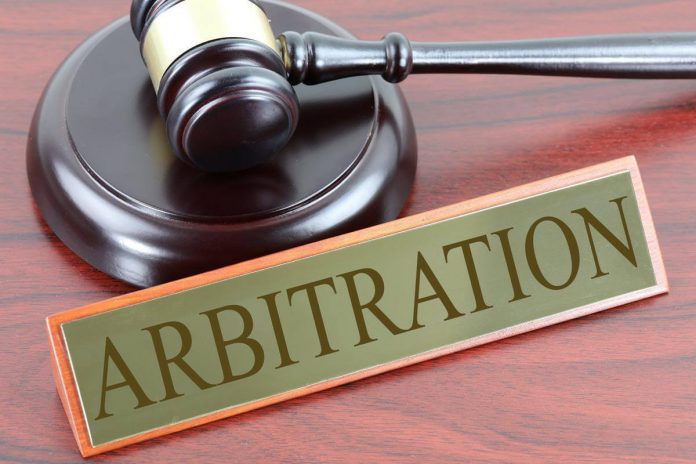This article is written by Priyal Pingle pursuing Certificate Course in Arbitration: Strategy, Procedure and Drafting from LawSikho.
Table of Contents
Introduction
The process of approaching a court for resolution of the dispute can be a very intimidating and tiring process due to the formalised court procedure, different lawyers using different tactics to prolong the litigation and courts with a huge burden of cases. Also, the litigation can be expensive and the parties often have to wait for many years to get a solution for their dispute.
Hence, different alternative dispute resolution methods have evolved for quick resolution of private disputes which are less time consuming and less expensive in nature. These methods are generally classified into arbitration, conciliation, negotiation and mediation.
Arbitration is a private process used to settle disputes between private entities, outside the court machinery by one or more persons called arbitrators which is executable as a decree of the court. It is the flexible and consensual process to settle disputes between parties to a contract, where parties refer the dispute to a third party.
In India, arbitration is governed by the Arbitration and Conciliation Act, 1996. A decision of the arbitrator is known as an arbitral award. An arbitral award enforceable in the same manner as if it were a decree of the court.
According to Section 16 of the Arbitration and Conciliation Act, 1996 the arbitral tribunal can rule on its own jurisdiction. The provision of section 16 has been framed in accordance with Article 16 of the UNCITRAL Model Law. This section is based on the doctrine of ‘Kompetenz-Kompetenz’.
Meaning and scope of Section 16
Under Section 16 of the Arbitration and Conciliation Act, 1996 the arbitral tribunal according to the doctrine of kompetenz kompetenz has the authority to decide on its own jurisdiction. According to Section 16, the arbitral tribunal has the authority to decide whether it has the jurisdiction to adjudicate the dispute or not. Also, the arbitral tribunal can decide on any objection with respect to the existence or validity of the arbitration agreement.
When to object to the jurisdiction of the arbitral tribunal?
According to Section 16 of the Arbitration and Conciliation Act, 1996 a plea should be presented before the arbitral tribunal for an objection to the jurisdiction of the arbitral tribunal. This objection should be raised before the submission of the statement of defence. Also, a party does not get precluded from raising such an objection merely because he has participated in the appointment of an arbitrator.
Also, an objection that the arbitral tribunal is exceeding the scope of its authority shall be raised as soon as the matter, which is alleged to be beyond the scope of its authority, is brought up during the arbitration proceedings.
The arbitral tribunal may admit a plea of objection at a stage later than the stages mentioned above if it considers the delay justified. However, if the arbitral tribunal, upon an examination of the matter, is of the opinion that the delay is unjustified, it is at complete discretion to dismiss the same. If such an application is made directly to the courts then the courts are bound to reject the application and direct the parties to refer such a matter before the arbitral tribunal.
Arbitral tribunal accepting the objection to its jurisdiction
- An appeal against an order of the arbitral tribunal accepting the objection raised on its jurisdiction or the plea that it is exceeding its scope of authority can be made to a court having competent jurisdiction under Section 37(2)(a) of the Arbitration and Conciliation Act, 1996.
- According to Section 37(3), there should not be a second appeal from an order of the Appellate Court. But this does not apply to the power of the Supreme Court to entertain special leave petitions.
Arbitral tribunal dismissing the objection to its jurisdiction
- As per Section 16(5) of the Arbitration and Conciliation Act, 1996 if the arbitral tribunal rejects the objection and decides that it is competent to adjudicate the present dispute then it shall continue with the arbitral proceedings and pass the arbitral award.
- The remedy is provided under Section 16(6) of the Arbitration and Conciliation Act, 1996. According to this subsection challenge to this order of the arbitral tribunal can be made in a court of competent jurisdiction through an application/petition under Section 34 for setting aside the impugned arbitral award.
- According to Section 34(3) of the Arbitration and Conciliation Act, 1996 the petition for setting aside the impugned award must be made within a period of three months from the date of the receipt of the arbitral award by the party making such application.
- The court must dispose of an application for setting aside an arbitral award within a period of 1 year from the date on which the notice of intention of appellant to invoke Section 34 is served upon the respondent.
- Under Section 37(1) (b) of the Arbitration and Conciliation Act, 1996 an order setting aside the arbitral award or refusing to set aside the impugned award can be appealed.
Can an order dismissing an application under Section 16 of the Arbitration and Conciliation Act be challenged?
Section 5 of the Arbitration and Conciliation Act, 1996 clearly express that there should be no judicial intervention in the matters governed by part I of the Arbitration and Conciliation Act, 1996 except where it is provided in this Act. Therefore this act follows the principle of minimum judicial intervention in arbitration proceedings. For speedy resolution of the disputes, this act allows for limited appealable orders. Under Section 16 of the Arbitration and Conciliation Act, 1996 if the arbitral tribunal finds that it does not have jurisdiction then an appeal can be filed under Section 37 of the Act. But if the arbitral tribunal considers that it is competent then no right to appeal is provided in such cases if an award is passed. According to Section 16(5), the decision rejecting the plea can be challenged only with the final award. The aggrieved party has to wait till the passing of the final award and then he can file an application for setting aside such an arbitral award.
On 6 January 2021, a three-judge bench of the Supreme Court in the matter of Bhaven Construction through Authorised Signatory Premjibhai K. Shah v. Executive Engineer Sardar Sarovar Narmada Nigam Ltd. & Anr. [2021 SCC OnLine SC 8] held that the challenge under Section 16 of the Arbitration and Conciliation Act,1996 to the jurisdiction of the arbitrator or tribunal has to be determined by the arbitrator or tribunal themselves and can only be challenged under Section 34 upon the passing of an arbitral award.
The apex court also noted that when a statutory forum is created by law for redressal of grievances, a writ petition shall not be entertained ignoring the statutory dispensation.
In the case of Deep Industries Ltd. v. Oil and Natural Gas Corporation Ltd. & Anr (2019) SCC Online SC 1602, the apex court held that a petition under Article 227 of the Constitution of India can be filed in case of challenging the order of the arbitral tribunal dismissing Section 16 application only if the possible conclusion is that there is a patent lack in inherent jurisdiction.
In Cadre Estate Pvt. Ltd. v. Salochna Goyal W.P. (C) 2782/2010, a learned single Judge of the Delhi High Court held that if the application under Section 16 of the Arbitration and Conciliation Act, 1996 is allowed by the arbitrator then the petitioner has to abide by the Section 16(5) along with Section 16(6) of the Arbitration and Conciliation Act, 1996 and wait until the passing of the final arbitral. If the award goes against the petitioner then he can challenge the award on the grounds available under Section 34 of the Arbitration Act. The court also stated that just because this may cause the petitioner inconvenience of having to wait till the final award of the arbitral proceeding is no ground to entertain a writ petition at an intermediate stage which is contrary to Section 16 the Act.
In M/s S.B.P. & Co. v. M/s Patel Engineering Ltd. & Anr. (2005) 8 SCC 618 the Honourable Supreme Court held that where any of the party is aggrieved by any order of the arbitral tribunal, which is not appealable under Section 37 of the Act, such party has to await the final arbitral award by the tribunal to raise a challenge under Section 34 of the Act.
In Rajnigandha Co-operative Group Housing Society Ltd v. Chand Construction Co 2002(1) RAJ 212 (Del), the issue was whether the ruling on its own jurisdiction by the arbitrator is an interim award and appealable. The Delhi High court held that the ruling on its own jurisdiction by the arbitrator under Section 16(5) is not an interim award and such a petition under Section 34 is not maintainable. The court also explained that the arbitral tribunal shall continue with the proceedings and make an award without delay and without the arbitral process being interfered with at that stage by the court in their supervisory role.
Conclusion
From the above judgements, it is clear that any challenge to the jurisdiction of the arbitrator or tribunal necessarily has to be determined by the arbitrator or tribunal themselves in the first instance and it can only be challenged under Section 34 after the final arbitral award. Section 16 of the Arbitration and Conciliation Act, 1996 does not provide a right to appeal against the order if the tribunal accepts its jurisdiction. But this may cause a waste of time and money if the court determines that the arbitral tribunal or the sole arbitrator did not have the jurisdiction in the first place. Hence it is suggested that an amendment should be made in Section 37 of the Act wherein the court should expeditiously decide any order against Section 16(2) and 16(3) of the Act and the arbitral tribunal should have a right to decide whether to continue with the proceedings or not.
Students of Lawsikho courses regularly produce writing assignments and work on practical exercises as a part of their coursework and develop themselves in real-life practical skills.
LawSikho has created a telegram group for exchanging legal knowledge, referrals, and various opportunities. You can click on this link and join:
 Serato DJ Crack 2025Serato DJ PRO Crack
Serato DJ Crack 2025Serato DJ PRO Crack











 Allow notifications
Allow notifications


